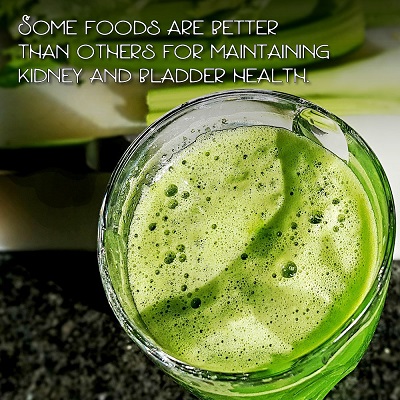 The kidneys and the bladder are responsible for removing waste products and toxins, and excess fluids from the body. The kidneys also produce hormones that regulate blood pressure levels, while the bladder is the temporary storage receptacle for urine.
The kidneys and the bladder are responsible for removing waste products and toxins, and excess fluids from the body. The kidneys also produce hormones that regulate blood pressure levels, while the bladder is the temporary storage receptacle for urine.
Keeping these organs healthy is vital in preventing health problems. In the US alone, around 26 million American adults suffer from serious kidney diseases.
Other kidney and bladder problems that you might encounter are:
- Urinary tract infection
- Kidney stones
- Blood in urine
- Protein in urine
- Bladder control issues
- Chronic kidney diseases
One way – possible the simplest and most effective way – to help keep the kidneys and the bladder healthy is by eating a healthy diet. Here are some foods that will help you do just that.
Celery
Celery is rich in vitamin C and other minerals and nutrients that boost the immune system and protect the kidneys and the bladder against infections. It contains antioxidant agents that neutralize toxins in the body. Celery contains an apigenin compound that is used to fight bacteria, viruses, and inflammation of the body in Chinese medicine.
Cauliflower
Cauliflower contains antioxidants that help reduce inflammation. It’s also high in fiber and vitamin K, vitamin C, and folate. Cauliflower helps boost the immune system to protect you against infections. It’s good for people with kidney problems who need to avoid starchy foods such as potatoes and rice.
Garlic
Garlic is rich in vitamin C and is used to reduce inflammation. Garlic contains allicin, which is an antibacterial agent that helps fight infection in the urinary system. It can help treat yeast infections by preventing the growth of yeast and promoting good bacteria. It can also help treat enlarged prostates.
Sea Bass Fish
Sea bass is a fatty fish rich in omega-3 and protein. Omega 3 is good for the heart and helps to reduce high blood pressure, which is one of the risk factors for kidney diseases. Omega-3 fatty acids also help prevent some bladder infections.
Onions
Onion is rich in flavonoids that are a powerful antioxidant. It helps fight toxins and inflammation in the body and may also reduce high blood pressure. People with kidney and bladder problems need to reduce sodium intake, and onions (and garlic too) make dishes tasty with little or no salt.
Berries
Berries, such as blueberries, cranberries, raspberries, strawberries, and cherries, are rich in nutrients and antioxidants. Berries help promote the healthy function of the kidneys and the bladder. Berry juices help cleanse and prevent kidney infections, including urinary tract infections.
Beans
Black beans are rich in protein and fiber. They contain antioxidant compounds that help the body fight some diseases and infections. Black beans also help maintain stable blood pressure.
Dark Leafy Greens
Green and leafy vegetables, such as spinach, broccoli, and kale, contain different nutrients and antioxidants. Spinach has inflammatory properties and is a good source of iron, folate, and other essential vitamins. It helps regulate blood pressure and boost the immune system. Broccoli is rich in fiber that promotes good digestion to prevent urinary incontinence. Kale or leaf cabbage contains vitamin A, C, and vitamin K, and other phytonutrients that can help prevent cancer.
Poor Diet Means Poor Health
Eating the right food can keep the kidneys and the bladder healthy by supplying essential nutrients and preventing damage caused by nutrient deficiencies. Aside from consuming the foods above, make sure that you stay hydrated. Water is vital for nutrient absorption and waste excretion. Avoid excessive intake of dairy products, white potatoes, red meat, bananas, canned foods, alcohol, and foods that are high in sodium and phosphorus.
An unhealthy diet can contribute to kidney diseases and bladder infections, which is why you must be mindful of what you eat. If the kidneys and the bladder aren’t functioning well, resultant toxins and waste can cause problems to other parts.
If you already have kidney or bladder problems, it’s all the more important to selectively choose the foods that you eat. Consult a nutritionist or your doctor for proper guidance on kidney and bladder-friendly diet plans.






